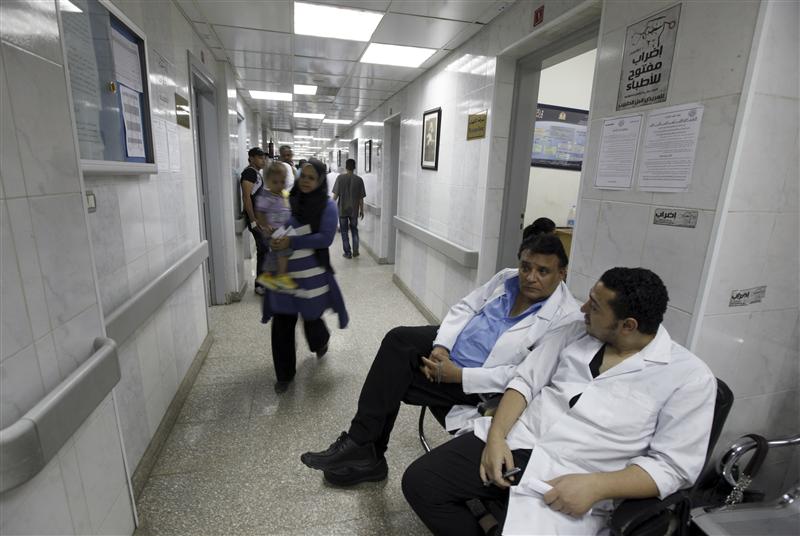Health ministry says staff strike 'led to patient deaths', doctors deny

By Gehad Abaza
Cairo, Jan 6 (Aswat Masriya) - Nurses and workers at a state-run hospital denied on Wednesday a ministry of health statement that claimed that a strike the staff are holding led to patient deaths.
In its statement the ministry of health said that the nurses and workers at the Nasser Institute hospital went on strike for "factional demands" such as increases in wages and entitlements.
The ministry of health spokesperson Khaled Mugahed told the state-owned MENA news agency that the approximately 300 strikers "prevented" patients from entering the hospital.
He added that the strikers also "prevented" patients that required urgent surgery from entering the operation rooms, which led to the death of some of the patients.
On their part doctors denied that the strike led to any patient deaths.
Ossama Abd al-Hay, an administrative member of the doctor's syndicate said that strike "did not affect or delay the work at all" and "did not lead to the deaths of the patients."
In his statements to Aswat Masriya Abd al-Hay said that the doctors of the hospital are not taking part in the strike this time, adding that one cannot strike in emergency departments of the hospital. This also includes the department of tumor surgery in the hospital.
The workers and nurses know well that the dangers of halting these departments, and thus hold their strikes on the rest of the departments "as a means of pressure" so as not to risk the lives of the patients, Abd al-Hay said.
Mugahed said that the ministry of health "informed" Egypt's state security apparatus of the strike, adding that the striking workers and nurses should be exposed to "the penalty of the law" as they are "disabling" the work of official government entities.
On the other hand, Abd al-Hay said that demands for higher wages and entitlements are "legitimate" and are a "constitutional right that cannot be denied."
He added that patients have not been prevented from entering the hospital and workers know very well the size of the responsibility that peoples' lives represent. Urgent surgery in the hospital cannot be prevented, he added.
According to its official website, the Nasser Institute was founded in 1987 and is "one of the largest specialized medical centers affiliated to the Ministry of Health."
Last summer, Egypt's Prime Minister Ibrahim Mehleb said he was "surprised" after making visits to government medical facilities, including the National Heart Institute.
Mehleb's comments prompted a group of Egyptian doctors to create a campaign on a Facebook page called "So that he doesn't get surprised when he comes." In it, they posted photographs of the grim hospital conditions across the country.
Photos of old, torn apart, and unsanitary facilities were posted alongside photos of stray animals inside the hospital wards. The page now has almost 340,000 followers.
In Feb. 2014, Egyptian doctors held a partial nationwide strike against the work conditions of doctors and hospitals in the country.
Approximately 55 percent of the doctors in the country participated, the secratary-general of Egypt's Doctors Syndicate at the time, Mona Mina had said.
In Oct. 2012, at least 15,000 doctors who had been on partial strike ratcheted pressure on the ministry of health by threatening to submit en masse their resignations.
The strikers, which had also included then board member Mona Mina, had been calling for 15 per cent of the state budget to be allocated to public health (up from the current 5 per cent), salary increases for doctors, and security upgrades at Egypt's hospitals and medical centres.
According to the World Health Organisation reports, Egypt invests approximately 1.5% of its gross domestic product (GDP) on health services.









facebook comments